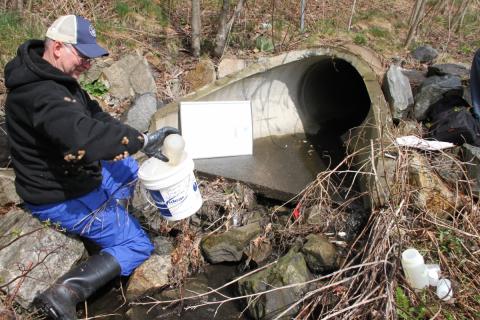
Stormwater discharges are to blame for most of the existing water impairment in the NH Seacoast. But monitoring stormwater discharge is difficult, and it is not a major focus of current monitoring programs. To address this critical issue, the Coastal Research Volunteers and other local citizen volunteers sampled and analyzed runoff from prioritized stormwater discharges in Exeter and Greenland, NH.The goal was to improve the health of urban aquatic ecosystems.
Through this project, CRV performed education and outreach related to stormwater management for citizens in their own NH Seacoast communities. They helped identify problem areas, and assisted citizens in becoming advocates for effective stormwater treatment and management strategies.
This pilot project successfully demonstrated that volunteers can readily conduct storm drain monitoring and produce quality data. Furthermore, volunteer participation in data collection saves costs and greatly expands sampling capacity. Significant levels of some key water pollutants were detected, like fecal-borne bacteria, chloride and nitrogen, showing how significant storm drains are as pollution sources and the need for continued monitoring. Some drains did not discharge any pollutants. This is important because it indicates to towns that not all drains will require pollution reduction measures.
You can read the full project reports below:
Chapter 1 - Report on the Pilot Volunteer Monitoring Program
Chapter 2 - Training Procedures, Field Sampling, Sample Processing and Analytical Methods